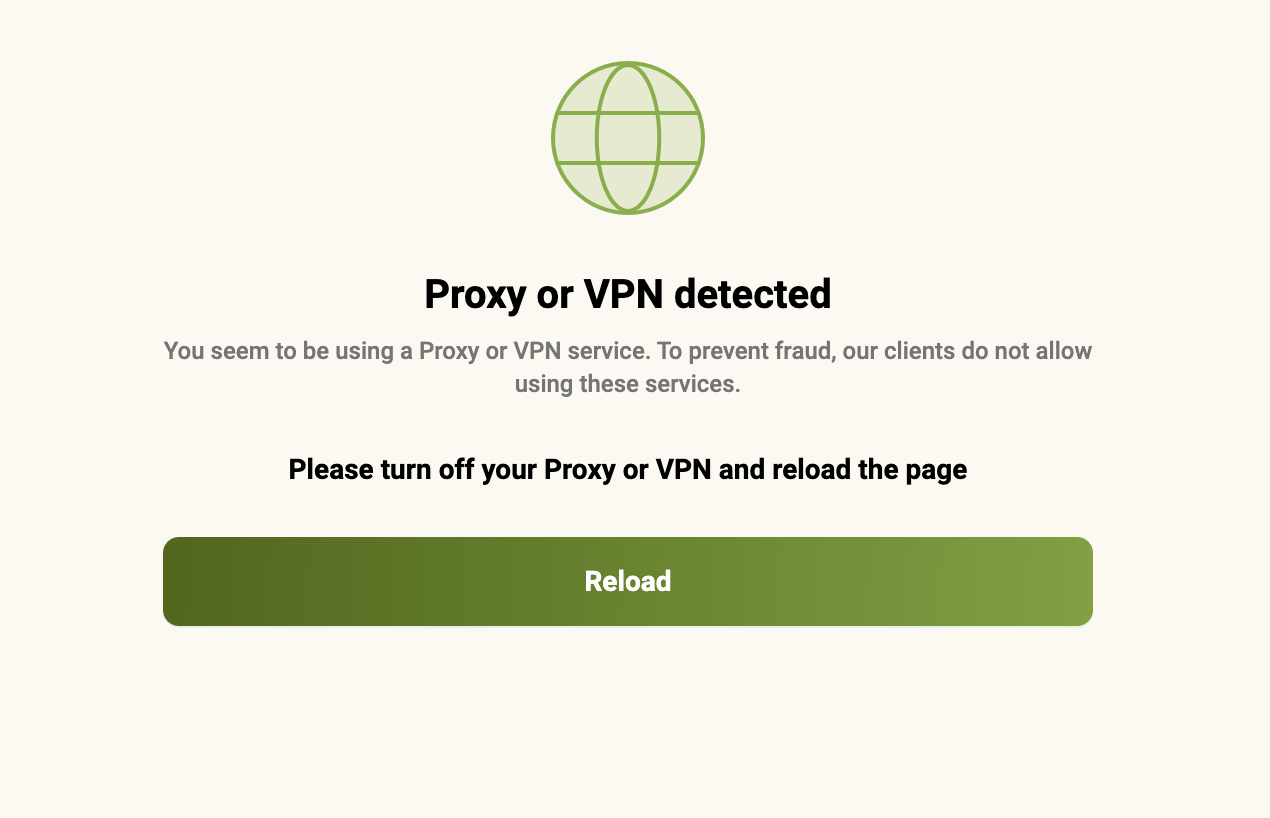To bypass VPN detection, use obfuscated servers or stealth VPN protocols. These methods mask your VPN traffic, making it appear as regular internet activity.
Many online platforms employ advanced techniques to detect and block VPN usage. This can limit access to content or services, especially for users seeking privacy. Bypassing VPN detection becomes essential for those who want to maintain anonymity while surfing the web.
Techniques like using obfuscated servers can help disguise VPN traffic, making it less recognizable. Stealth protocols also play a crucial role by altering data packets to blend with regular traffic. Understanding these methods allows users to navigate restrictions effectively and enjoy seamless internet access without compromising their privacy.
The Rise Of Vpn Detection
VPN detection is becoming more common. Websites and services aim to block users hiding their identity. This trend affects many people who value their privacy. Understanding how VPN detection works is crucial.
What Triggers Vpn Detection?
Several factors can trigger VPN detection. Here are some common ones:
- IP Address Blacklisting: Some IP addresses are known to belong to VPNs.
- DNS Leaks: If DNS requests reveal your real location, detection occurs.
- Traffic Patterns: Unusual traffic patterns can flag VPN use.
- VPN Protocols: Certain protocols are easier to detect than others.
| Trigger | Description |
|---|---|
| IP Address Blacklisting | Known VPN IPs are blocked. |
| DNS Leaks | Revealing real location through DNS requests. |
| Traffic Patterns | Unusual activity raises flags. |
| VPN Protocols | Some are easier to detect. |
The Impact On User Privacy
VPN detection significantly impacts user privacy. It limits access to content. Users may feel unsafe browsing the web. Here are the main consequences:
- Restricted Access: Users may lose access to services.
- Privacy Erosion: Personal data may be exposed.
- Increased Surveillance: Users become more visible to authorities.
- Online Freedom: Users face limitations on content access.
Many users choose VPNs for privacy. Detection undermines this choice. Understanding these impacts helps users make informed decisions.
Understanding Vpn Detection Methods
VPN detection methods help websites identify users hiding their location. Understanding these methods is crucial for maintaining privacy. This section explores two main detection techniques: IP Address Analysis and Deep Packet Inspection (DPI).
Ip Address Analysis
IP Address Analysis involves checking the IP address of users. Websites can see if an IP belongs to a known VPN provider.
- Common methods include:
- Matching IPs against VPN databases
- Monitoring IP address behavior
- Checking for shared IP addresses
VPN providers usually have a limited number of IP addresses. This makes it easier for websites to detect and block them. Users may face issues like:
- Accessing restricted content
- Being banned from services
- Experiencing slower speeds
Deep Packet Inspection (dpi)
Deep Packet Inspection (DPI) examines data packets sent over the internet. It inspects the content and metadata of each packet.
Websites can detect VPN traffic by looking for specific patterns. DPI can identify:
- Encryption protocols used by VPNs
- Header information unique to VPNs
- Irregular data flows typical of VPN usage
With DPI, websites can block VPN traffic effectively. This can lead to:
| Impact of DPI on VPN Users | Description |
|---|---|
| Access Issues | Users may not reach certain websites. |
| Speed Throttling | Internet speeds may slow down. |
| Privacy Risks | Personal data may be exposed. |
Choosing The Right Vpn
Selecting the right VPN is crucial for bypassing detection. Not all VPNs work the same way. Some are better at evading detection than others. Understanding the features you need helps in making the right choice.
Criteria For Selection
Choose a VPN based on these key criteria:
- Obfuscation Technology: This hides your VPN traffic.
- Server Locations: More locations mean better options.
- No-Logs Policy: Ensures your data stays private.
- Speed: Faster connections enhance your experience.
- Customer Support: Reliable support helps solve issues quickly.
These criteria ensure you select a VPN that is effective and reliable.
Top Vpns That Evade Detection
| VPN Service | Obfuscation | No-Logs | Speed | Customer Support |
|---|---|---|---|---|
| ExpressVPN | Yes | Yes | Fast | 24/7 Live Chat |
| NordVPN | Yes | Yes | Very Fast | Email & Live Chat |
| Surfshark | Yes | Yes | Fast | 24/7 Support |
| CyberGhost | Yes | Yes | Moderate | Email & Chat |
These VPNs provide strong features for bypassing detection. Choose one that meets your needs for the best results.
Advanced Techniques To Bypass Vpn Detection
VPN detection has become more sophisticated. Many websites use advanced methods to block VPN users. Here are some effective techniques to bypass these restrictions.
Obfuscation Methods
Obfuscation helps disguise VPN traffic. It makes your data look like regular internet traffic. This can trick detection systems.
- Stealth VPNs: These use special protocols to hide VPN usage.
- TCP/UDP tunneling: It sends data over different ports to avoid detection.
- SSH tunneling: This method encrypts your data, making it hard to identify.
Using obfuscation methods can enhance privacy. It creates a more secure connection.
Using Residential Ips
Residential IPs are real IP addresses from home users. They help avoid detection effectively.
| Advantages of Residential IPs | Disadvantages of Residential IPs |
|---|---|
| Less likely to be blocked | Higher cost compared to data center IPs |
| Appears as regular internet users | Slower speeds than standard VPNs |
| Better for accessing geo-restricted content | Limited availability |
Using residential IPs offers a unique advantage. They blend in with normal traffic. This makes detection more difficult.
The Role Of Shadowsocks And Wireguard
VPN detection is a growing concern for many users. Tools like Shadowsocks and WireGuard help bypass these restrictions. They offer privacy while maintaining speed and security. Understanding both technologies is essential for effective use.
Shadowsocks: An Overview
Shadowsocks is a secure proxy designed for bypassing censorship. It masks your internet traffic. This makes it hard for providers to detect VPN usage. Here are some key features:
- Lightweight: Shadowsocks uses minimal resources.
- High Performance: It offers fast connection speeds.
- Flexible: Works on multiple platforms like Windows, macOS, and mobile.
Shadowsocks operates through a series of encrypted connections. This makes it less recognizable compared to traditional VPNs. Many users prefer it for accessing restricted content.
Wireguard: Next-gen Protocol
WireGuard is a modern VPN protocol. It focuses on speed and simplicity. Here are some benefits of WireGuard:
- Fast: It provides high-speed connections.
- Secure: Uses state-of-the-art cryptography.
- Easy to Use: Simple configuration and deployment.
WireGuard’s codebase is smaller than other protocols. This reduces potential security flaws. Its efficiency makes it ideal for mobile devices and low-bandwidth situations.
| Feature | Shadowsocks | WireGuard |
|---|---|---|
| Speed | High | Very High |
| Security | Strong | Very Strong |
| Ease of Use | Moderate | Easy |
| Resource Usage | Low | Very Low |
Both Shadowsocks and WireGuard offer unique benefits. Users can choose based on their needs. Understanding these options helps enhance online privacy. They are excellent tools for bypassing VPN detection.

Credit: www.reddit.com
The Importance Of Stealth Servers
Stealth servers play a crucial role in online privacy. They help users bypass VPN detection. This is important for accessing restricted content.
What Are Stealth Servers?
Stealth servers are special types of VPN servers. They disguise VPN traffic to look like regular internet traffic. This makes it hard for websites or services to detect VPN usage.
- Obfuscation: They use techniques to hide the VPN signal.
- Privacy: They enhance user anonymity online.
- Access: They allow access to restricted sites.
How They Help In Bypassing Detection
Stealth servers provide various benefits for users. Here are key ways they help:
- Masking: They mask VPN traffic, making it indistinguishable.
- Bypassing Restrictions: They help users bypass geo-blocks.
- Enhanced Security: They protect user data from snoopers.
Using stealth servers, users can:
| Benefit | Description |
|---|---|
| Unblock Content | Access websites and streaming services freely. |
| Improved Speed | Experience faster connections without detection. |
| Stay Anonymous | Surf the internet without revealing identity. |
Stealth servers are essential for safe browsing. They ensure a seamless experience while protecting user privacy.
Maintaining Anonymity And Security
Maintaining anonymity and security while using a VPN is crucial. Many online services use VPN detection tools. These tools can expose your identity and data. Follow best practices to stay safe and hidden online.
Regularly Changing Ip Addresses
Changing your IP address often can help protect your identity. Here are some effective methods:
- Use a VPN with a dynamic IP feature.
- Connect to different servers frequently.
- Utilize IP rotation services.
Regularly changing your IP can confuse detection systems. This practice makes it harder for services to track you.
Staying Updated With The Latest Techniques
Staying informed about the latest VPN detection methods is key. Follow these steps:
- Read blogs and articles on VPN technology.
- Join forums dedicated to online privacy.
- Subscribe to newsletters from security experts.
Understanding new techniques helps you adapt quickly. This knowledge enhances your anonymity and security.

Credit: www.reddit.com

Credit: privacy.net
Frequently Asked Questions
How Can I Avoid Vpn Detection?
To avoid VPN detection, choose a reputable provider that offers obfuscation technology. This technology masks your VPN traffic to look like regular internet traffic. Additionally, using dedicated IP addresses can help minimize detection risks. Regularly updating your VPN software also enhances security and reduces the chance of detection.
What Vpn Features Help Bypass Detection?
Look for features like obfuscation, stealth mode, and dedicated IP addresses. These features make your VPN traffic indistinguishable from regular traffic. Some providers also offer port selection and traffic masking. These tools are essential for bypassing restrictive networks and maintaining online privacy.
Is It Legal To Bypass Vpn Detection?
Bypassing VPN detection can fall into a legal gray area. It often depends on the terms of service of the website or service you are accessing. Always check local laws and policies before attempting to bypass restrictions. Engaging in illegal activities can lead to severe consequences.
What Are The Risks Of Bypassing Vpn Detection?
Bypassing VPN detection can expose you to several risks. You may face account bans or restrictions on services. Additionally, your personal data could be compromised if you’re not careful. Always weigh the benefits against potential risks before taking action.
Conclusion
Bypassing VPN detection can enhance your online freedom. Employing techniques like obfuscation and server rotation can help maintain privacy. Always stay updated on best practices to ensure secure browsing. Remember, a reliable VPN is your best ally. Stay informed and enjoy a safer internet experience without restrictions.


0 comments